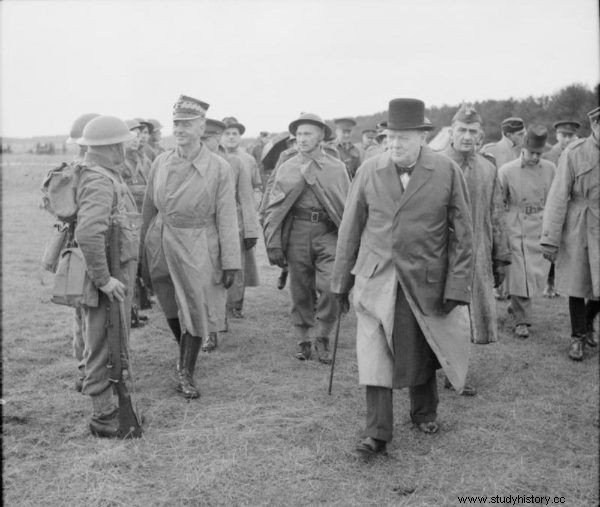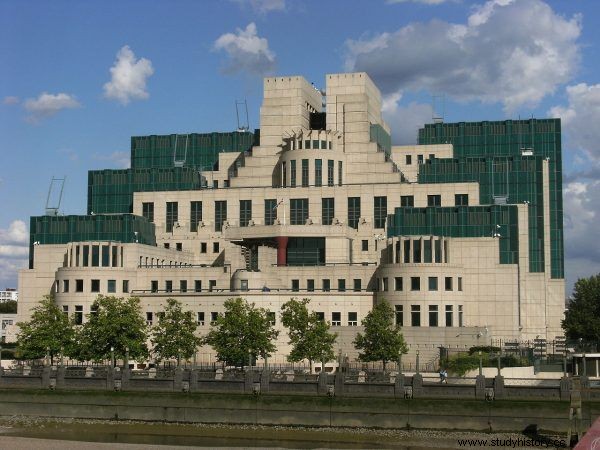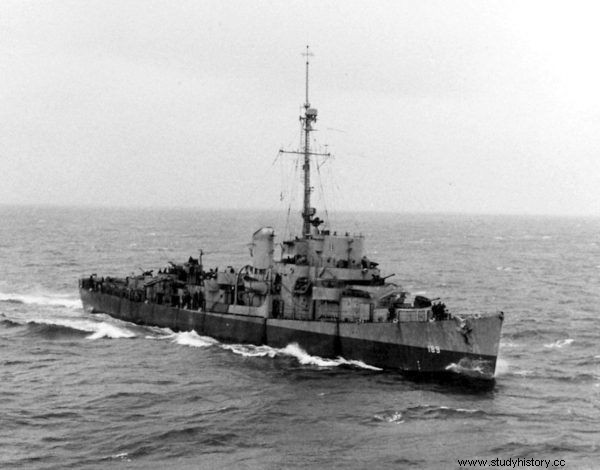When it comes to gold, no one can be trusted. Poles found out about it during World War II, trying to find a safe hiding place for the national treasure. Even their closest allies stretched out their hands for tens of tons of reserves of the precious metal. Fortunately, not very skilfully.
When the war broke out in September 1939, one of the problems faced by the Polish government was securing the country's gold reserves. It was about - a trifle! - seventy-nine tons of precious metal . Most of them were placed in the treasury of Bank Polski in Warsaw. The rest was hidden in Siedlce, Brześć, Zamość and Lublin.
The decision to evacuate the treasury to the West was made in the first days of the conflict. They did not want to risk taking it over by the enemy. After all, funds were needed - both to wage war and to rebuild the country after its end.
On French soil
The gold, initially transported in bus convoys, left Poland on the night of September 13-14. It first went to Romania, and finally, after almost a month's journey through Turkey and Italy, landed in France. On October 7, they were placed in the main treasury of the Bank of France in Nevers. Safely? Not for long…

Polish gold went to the French Bank in Nevers in October 1940.
The issue of securing deposits reappeared at the turn of May and June 1940. France's situation at the front continued to deteriorate. "Although the Polish treasury resting in the Nevers treasury (...) was not directly threatened by hostilities , there was a real threat that in the event of surrender, the Germans would again want to take it over "- says Andrzej Fedorowicz, describing the gold epic as part of the book" Famous Escapades of Poles ".
So evacuation again. This time, however, the Polish ore did not travel alone. It was added to the transport of Belgian and Luxembourg reserves, previously also located in France. The huge cargo reached Brittany, from where on June 17 aboard the auxiliary cruiser Victor Schoelcher set off for America. At least that was the opinion of Major Stefan Michalski who supervised the transfer of Polish assets.
Imagine the surprise of the Pole when the ship unexpectedly changed course! On June 23, she entered Casablanca. “The threat was all the greater because, after France's surrender, its colonies came under the management of the collaborative government of the Vichy state. Now he could decide to seize the deposits, writes Fedorowicz.

From that moment on, Poles practically lost control over their treasure. When the gold was unloaded at the Dakar, Michalski could only protest and watch as boxes of Polish, Belgian and Luxembourgish assets are transported inland.
"Helpful" British Government
The only thing left for the government-in-exile in this critical situation were diplomatic efforts. Attempts were made to persuade the British and Americans to put pressure on the Vichy state and force them to give up their gold. London was also urged to organize an action to reclaim the reserves from the French.
British Prime Minister Winston Churchill agreed with the idea. The problem is that ... if the action was successful, he did not intend to return the gold to its rightful owners! The islanders were in an exceptionally difficult situation at that time. They practically fought Hitler themselves and they were in urgent need of money.

Churchill applauded the plans to recover Polish gold from the hands of the Vichy government. This did not mean, however, that he was going to give them back to the Poles.
British intelligence, MI6, took care of the case. It was planned to seize documents that would allow the London government to act as the administrator of the property. The action was aimed at, among others, Major Michalski, completely unaware of the tightening loop around him.
Ultimately, however, the tricky operation was not carried out. Why? It was canceled by ... the British themselves. Not because their conscience suddenly caught them. The reasons for their resignation are explained by Andrzej Fedorowicz in the book "The famous escapes of Poles" :
Major Desmond Morton, Churchill's intelligence adviser, prevailed. When MI6 leadership presented him with the plan and the agents selected for its implementation, he did not leave them dry. The action was to be carried out by two young intelligence officers - Lieutenants Godwin and Franck.
Not only did they not know anything about banking, they didn't even know French. In addition, Morton described both agents as "perfectly simple-minded" and utterly unfit for this type of mission. Finally, added sarcastically that the MI6 planned expedition "only lacks a jazz orchestra and a cabinet of curiosities." The mission has been canceled.

British intelligence MI6 did not really show off when preparing the gold seizure operation.
What's next?
Despite the failure of the first attempt, the idea of seizing gold in Africa was not abandoned. Another opportunity for its implementation arose when the leader of the Free French, General Charles de Gaulle, entered the scene. He encouraged Churchill to plan an action to capture Dakar. Later, the joint troops would go in search of the lost treasure.
The Poles, of course, were not informed about anything. The government found out about the operation thanks to its intelligence agents. No wonder he finally became suspicious. However, he was powerless.
The British-French trip to Dakar in September 1940 turned out to be - perhaps fortunately for us - a complete failure. Unfortunately the very attempt to recover the gold angered the Vichy authorities to such an extent that they again transferred the held treasures . Where? It has not been possible to establish. And yet at any moment the Germans could finally convince their allies on the Seine that the captured gold should go to them ...

Polish gold was sent to America on board the destroyer USS Bronstein.
The Polish government still faced many years of uncertainty. It was not possible to regain control of the treasury until the beginning of 1944! It was more than a year after the Allied landing in Africa. This time the Free French posed further obstacles. They denied Polish officials entry to Dakar. Difficult negotiations lasted several months.
Polish gold was finally evacuated to America in several shipments, from spring to autumn 1944. It was finally safe. And this is how you can talk about happiness - some of those traveling with our Belgian and Luxembourg deposits fell into Hitler's hands, exactly as was feared.
Source:
Trivia is the essence of our website. Short materials devoted to interesting anecdotes, surprising details from the past, strange news from the old press. Reading that will take you no more than 3 minutes, based on single sources. This particular material is based on:
- Andrzej Fedorowicz, The famous escapes of Poles , Fronda 2018 publishing house.
- Wojciech Rojek, The wartime fate of Polish gold , "Bankoteka" 09.2014.
Get to know the fascinating stories of famous Polish refugees:

